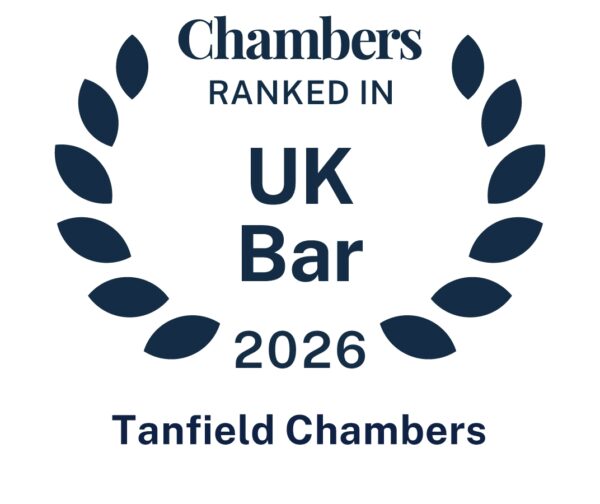Marc Glover, Thomas Dawson and Sami Allan examine the recent High Court
Is there an implied term not to use premises for any illegal purpose?

In what circumstances, if any, is it appropriate to imply a term into a lease that prohibits a tenant from using the demised premises for an illegal purpose? That was the issue in Assethold Ltd v Interface Properties Ltd [2024] UKUT 371 (LC).
Facts
309 Barking Road (the building) formed part of a parade of shops. Until 2006/2007, the first and second floor of the building consisted of two flats. On 30 October 2006, the then freeholder granted a lease of both flats for a term of 999 years for no premium at a peppercorn rent. It did not reserve itself any rights over the demised premises. The lease contained a covenant by the tenant to
“indemnify and keep indemnified the Landlord against all liability in respect of Legal Obligations, [i.e. any obligation from time to time created by any Enactment or Authority which relates to the Property or their use and includes without limitation obligations imposed as a condition of any Necessary Consents]”.
The lease’s forfeiture clause was unusual because it reserved to the landlord the right to recover possession if the insurance rent was not paid or if the tenant “has perpetually broken any of the terms of the lease”. As was noted by the Upper Tribunal (UT), given “perpetual” means “continuing forever”, it was “not at all clear when this forfeiture condition would be taken to be satisfied”.
Following the grant of the lease, the then lessee converted and let the demised premises into four flats without the necessary planning permission. On 18 November 2010, Newham LBC issued an enforcement notice against the building (which required the demised premises to be restored to their original condition). In 2021 and the Spring of 2022—after Assethold Limited (Assethold) had acquired the lease and Interface Properties Ltd (Interface) had acquired the reversion—Newham LBC threatened to bring enforcement action against both parties. This prompted Interface to bring an application in the First-tier Tribunal (Property Chamber) (FTT) for a determination that Assethold had (by not complying with the enforcement notice and taking steps to end the use of the demised premises as four flats) breached an implied covenant in the lease, namely that “the tenant may not use the demised property for an unlawful purpose or in any manner contrary to the Legal Obligations relating to the property and that the tenant shall comply with all Legal Obligations”. The FTT determined that such a term was implied into the lease and that it had been broken by Assethold who appealed to the UT.
Decision and commentary
Martin Rodger KC (deputy Chamber President) allowed the appeal. The FTT had been wrong to imply such a term into the lease. A covenant not to use the property for any illegal purpose was not an incident of every tenancy and, therefore, not implied into every lease as a matter of law (at [20]).
Some may have been surprised by this decision. The textbooks all suggest that there is a term implied into all tenancies that prohibits the use of the demised premises for an illegal purpose:
- “He must not, however, use the premises for an illegal purpose”: Woodfall’s Law of Landlord and Tenant (Sweet & Maxwell), 11.179.
- “There is an implied covenant on the tenant’s part against using the premises for an illegal purpose”:, Aldridge Leasehold Law (Sweet & Maxwell), 4.186.
- “Apart from express covenant, a tenant may use the demised premises for any purposes which is not unlawful”: Hill and Redman’s Law of Landlord and Tenant (LexisNexis), 3028.
However, the historic cases which the textbooks cite in support of these assertions are authority for a slightly different proposition, namely that it is not possible for either party to enforce a tenancy in which the purpose of the letting is to facilitate an illegal purpose, for example, where the premises are to be used: (1) for giving blasphemous lectures; (2) for the drawing of oil and tar contrary to statute; (3) to enable the sale of alcohol in contravention of excise laws; or (4) for use as a brothel (see Cowan v Milbourn (1866-67) L.R. 2 Ex.. 230; Gas Light & Coke Co v Turner (1840) 133 E.R. 127; Ritchie v Smith (1848) 136 E.R. 1329; Girardy v Richardson (1793) 170 E.R. 265). In such circumstances, the tenancy is void and, therefore, contains no enforceable covenants. For the principle to apply, it is also necessary that the purpose at the outset of the letting was unlawful. The fact that use of the land subsequently becomes unlawful (for example because planning permission for a particular use of the land is refused) does not render the contract unenforceable or amount to a breach of an implied covenant (Best v Glenville [1960] 1 W.L.R. 1198; (1961) 12 P. & C.R. 48). In any event, whether such a bald proposition, especially in the context of the grant of a long lease for a premium, has survived the Supreme Court’s decision in Patel v Mirza [2016] UKSC 42; [2017] A.C. 467 is itself an interesting question for another article.
In more recent times, in Burfort Financial Investments Ltd v Chotard [1976] 2 E.G.L.R. 53, Foster J drew a distinction between the cases that rendered a letting void and circumstances in which the landlord is ignorant of the illegal purpose at the outset of the letting. In the latter type of case, where there is no question of the letting being unenforceable, Foster J held that there is no rule of law that a term which prohibited illegal or immoral use should be implied into every lease noting that
“a lessor [who] tried to insert a covenant against illegal or immoral use in such an area as Brewer Street … would never be able to find a tenant.”
Even if such a rule of law did exist, it would not have assisted the landlord in the present case given the existence of the express term which set out what was to occur in the event that the premises were used for an unlawful purpose (i.e. the landlord would be indemnified for any losses sustained). This is because in Malzy v Eicholz [1916] 2 K.B. 308, it was held that where there exists an express covenant “dealing with a particular matter as to the demised premises there is no room for an implied covenant covering the same ground or any part of it”, even if the implied term is a necessary incidence of the letting such as the covenant to give quiet enjoyment.
That the UT held there was no scope for the second type of implied term (i.e. one that is necessary to give business efficacy to the contract or which is so obvious that it goes without saying), to be read into the lease ought to have been of no surprise to anyone. The landlord had intended to dispose of its interest in the premises (granting a term of 999 years and reserving itself no rights over the premises and only an unusual forfeiture clause which it was unlikely ever to be able to invoke). The parties had also agreed in express terms what was to happen if the premises were used for an unlawful purpose: the landlord would be indemnified for any loss sustained.
In such circumstances, the indemnity given to the landlord was perfectly understandable and the lease worked perfectly well without the suggested term being implied. As importantly, the implied term was inconsistent with the express terms of the agreement. Had the parties intended that tenant would be liable to the landlord in damages or be at risk of an injunction or forfeiture even if no loss was sustained by the landlord, they would have said so in express terms.
The case, therefore, serves to illustrate the high hurdle that a party must clear before a court is prepared to imply a term into a tenancy agreement.
Sam Madge-Wyld (who was counsel for Assethold Ltd, the successful appellant)
This article first appeared in Landlord & Tenant Review 2025, 29(2), 71-73 here.
This content is provided free of charge for information purposes only. It does not constitute legal advice and should not be relied on as such. No responsibility for the accuracy and/or correctness of the information and commentary set out in the article, or for any consequences of relying on it, is assumed or accepted by any member of Tanfield or by Tanfield as a whole.






